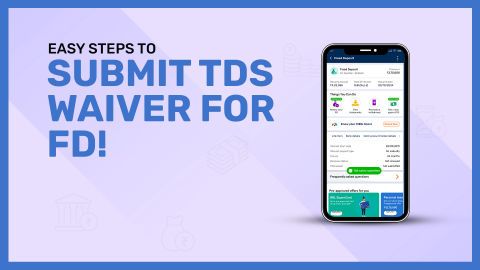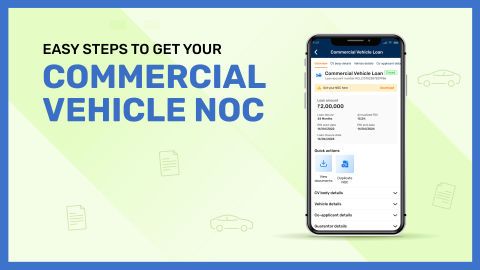ECS (Electronic Clearing Service) is an automated payment method that facilitates seamless financial transactions, particularly for loan repayments. However, when an ECS mandate fails due to insufficient funds or other banking issues, it results in an ECS return, leading to additional charges. ECS return charges can significantly impact borrowers, especially those with home loans. These charges not only increase the financial burden but also affect the borrower's credit score, making future loan approvals more challenging. Understanding the reasons for ECS returns, their implications, and preventive measures can help borrowers manage their loans more efficiently. Moreover, addressing ECS return charges promptly ensures financial stability and prevents unnecessary penalties. For borrowers looking to ease their financial commitments, options like part prepayment of home loan can help in reducing loan tenure and interest outgo. Knowing the home loan details thoroughly can also assist in better financial planning and avoiding ECS return charges.
How do ECS returns affect your home loan?
ECS returns can have severe consequences for home loan borrowers. These failures can lead to penalty charges imposed by banks and financial institutions, adding to the overall cost of the loan. Below are some key effects of ECS returns on home loans:
Additional financial burden: When an ECS mandate fails, banks charge penalty fees, increasing the total repayment amount.
Late payment fees: Many lenders impose late payment fees if the ECS return results in a missed EMI.
Interest rate hikes: Multiple ECS failures may cause lenders to increase interest rates, making the loan costlier.
Loan default risk: Frequent ECS failures may lead to the lender classifying the borrower as a defaulter, leading to legal consequences.
Negative credit score impact: ECS return charges directly affect credit scores, reducing loan eligibility in the future.
Loss of trust with lenders: Borrowers with repeated ECS failures may find it difficult to negotiate better loan terms or request restructuring.
Common reasons for ECS return charges
Several factors contribute to ECS returns. Understanding these reasons can help borrowers take preventive measures:
Insufficient account balance: The most common reason for ECS failure is a lack of funds in the bank account.
Incorrect mandate registration: Errors in ECS mandate details can cause rejection.
Banking technical issues: Sometimes, ECS transactions fail due to technical glitches in the banking system.
Non-maintenance of minimum balance: Some banks require a minimum balance to process ECS transactions.
Account freezing or closure: If the borrower's bank account is frozen or closed, ECS mandates fail.
Outdated bank details: Using an old or incorrect bank account for ECS payments leads to failures.
Mandate expiry: ECS mandates have validity periods, and if not renewed, they may get rejected.
Signature mismatch: If the borrower's signature does not match the bank's records, ECS can be returned.
Bank-specific restrictions: Some banks impose restrictions on ECS transactions, causing rejections.
Multiple EMI deductions on the same date: If several ECS payments are scheduled on the same day, there may not be enough funds to cover all transactions.
How to avoid ECS return charges on home loans?
To prevent ECS return charges, borrowers can take the following steps:
Maintain a sufficient balance: Ensure the bank account always has enough funds to cover EMI payments.
Set up payment reminders: Schedule reminders to check account balances before ECS transactions.
Enable auto-funding from another account: Link an alternate account to cover shortfalls.
Regularly review ECS mandates: Check and update ECS mandate details with the lender.
Use a backup payment method: Keep an alternative payment method ready in case of ECS failure.
Opt for advance EMI payments: Pay EMI amounts a few days in advance to avoid last-minute issues.
Monitor bank statements: Regularly review bank statements for any ECS-related errors.
Communicate with lenders: Inform lenders in advance if there is an issue with payment.
Impact of ECS return charges on your credit score
ECS return charges can directly impact a borrower's credit score in the following ways:
Reduces creditworthiness: A lower credit score makes it difficult to secure loans in the future.
Increases loan rejection rate: Lenders may reject loan applications due to frequent ECS failures.
Affects interest rates: A poor credit score can result in higher interest rates on future loans.
Limits financial flexibility: Borrowers with a bad credit history may face stricter loan terms.
Impacts CIBIL report: Each ECS return gets recorded in the borrower's credit report, affecting their financial profile.
Steps to resolve ECS return charges for home loans
If an ECS return occurs, borrowers can follow these steps to resolve the issue:
Check the reason for ECS return: Identify the cause of the failure from the bank statement.
Contact the bank or lender: Discuss the issue with the lender to understand penalties.
Clear dues immediately: Pay the outstanding EMI along with any penalties as soon as possible.
Request waiver of penalty charges: In some cases, banks may waive penalties if requested.
Update ECS mandate details: Ensure the ECS mandate is correctly registered.
Maintain a higher account balance: Keep additional funds in the account to avoid future failures.
Monitor payment status regularly: Track all ECS transactions to ensure successful processing.
In conclusion, ECS return charges can be an unnecessary financial burden that affects home loan repayment. Borrowers must take proactive steps to prevent ECS failures, such as maintaining adequate funds, regularly reviewing bank statements, and ensuring proper mandate registration. A single ECS failure may seem minor, but repeated instances can lead to increased penalties, higher interest rates, and a negative impact on the credit score. To manage loan repayment effectively, borrowers should explore options like part prepayment of home loan and be well-informed about their home loan details.




